~ LordM Box of 20 archive, 10/11/14
 lordmarcovan
Posts: 44,142 ✭✭✭✭✭
lordmarcovan
Posts: 44,142 ✭✭✭✭✭
In 2013, I decided to pare down my collections and simplify to just one single "Box of 20" for everything, hopefully to focus a bit more on quality than quantity. Still, pursuing quality is an ongoing challenge on my budget.
The idea is a freestyle "Box of 20" collection with no parameters or restrictions except that the coins must be certified and the collection is limited to twenty pieces. (When one comes in, another must go out, in a quest for ever more appealing coins.) Otherwise, anything goes. In a way, I have narrowed my focus by limiting myself to just twenty slabbed pieces, but on the other hand, I've opened up my horizons to pursue whatever catches my fancy, be it ancient, medieval, modern, or even some tokens and medals. It sort of feels liberating to be freed of the constraints of collecting "sets"- now I can collect what I like and not be a slave to any predetermined "structure". But as the coins get nicer, I suspect it will become more and more difficult for me sentimentally to stick to the "one in, one out" rule.
So now there is but one Box of 20 for my active collection. To wax Tolkienesque about it, "One box to rule them all... One box to find them... One box to bring them all, and in the darkness bind them."

Ancient Greece (Thessaly), silver pseudo-Rhodian drachm struck by King Perseus of Macedon, ca. 175-170 BC
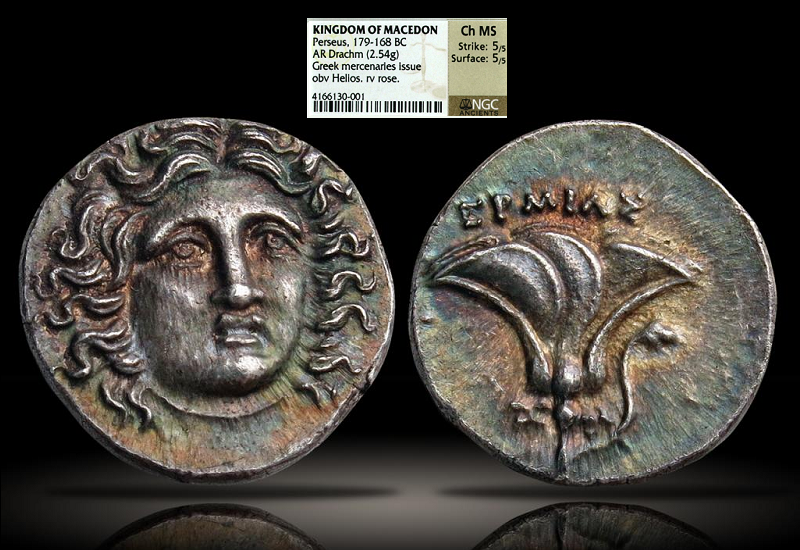
Ancient Greece: Seleucid Kingdom, bronze AE19 of Antiochus VIII, ca. 121-96 BC
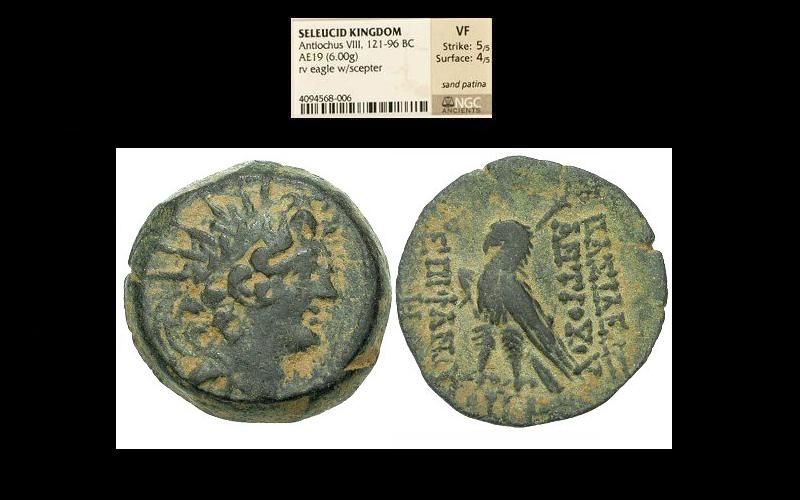
Ancient Rome (Imperial): silver denarius of Tiberius, ca. 14-37 AD: the biblical "Tribute Penny"
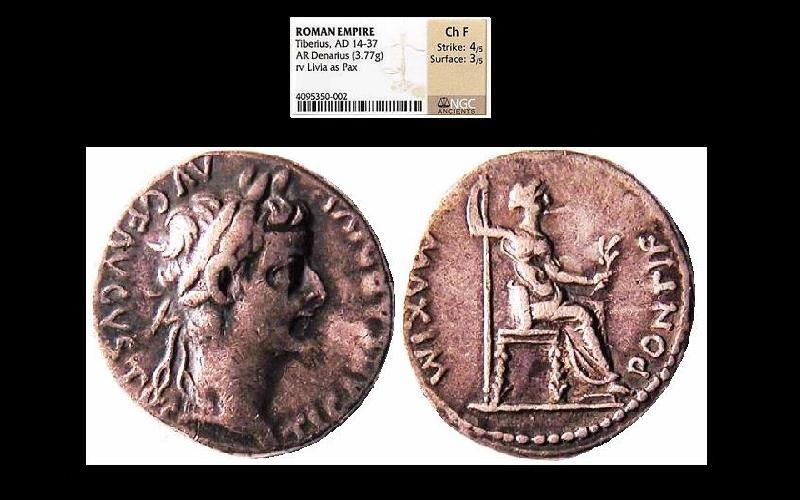
Ancient Rome (Imperial): bronze as of Claudius, ca. 41-54 AD
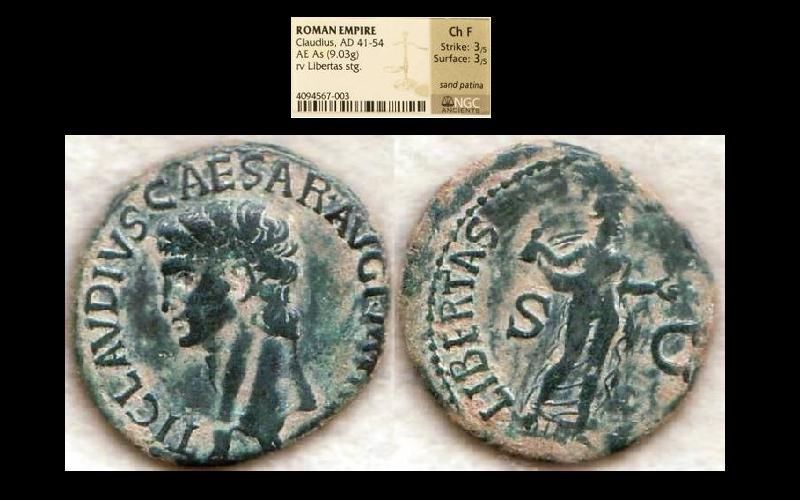
Ancient Rome (Imperial): silver denarius of Otho, ca. January-April, 69 AD
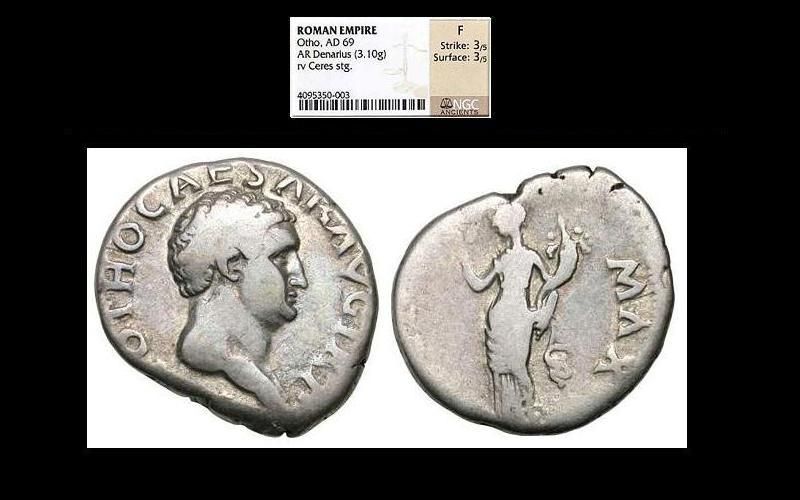
Ancient Byzantine Empire: gold tremissis of Justinian I, ca. 527-565 AD
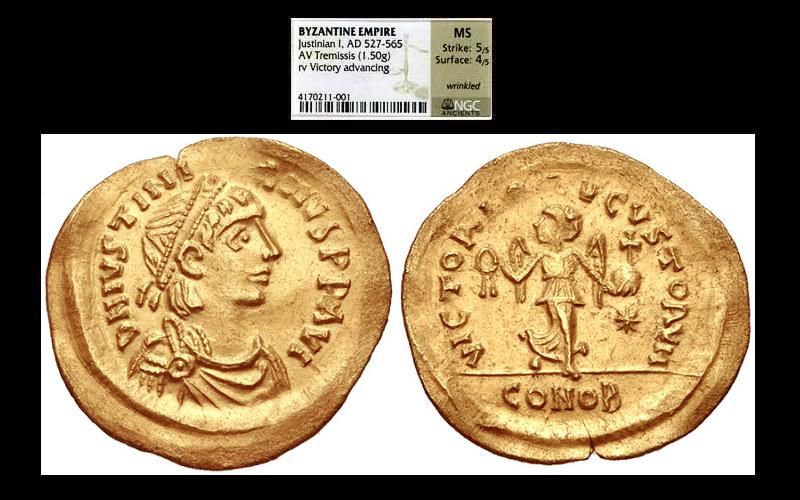
England (Anglo-Saxon): silver penny of Aethelred II (978-1016 AD), struck ca. 997-1003 AD
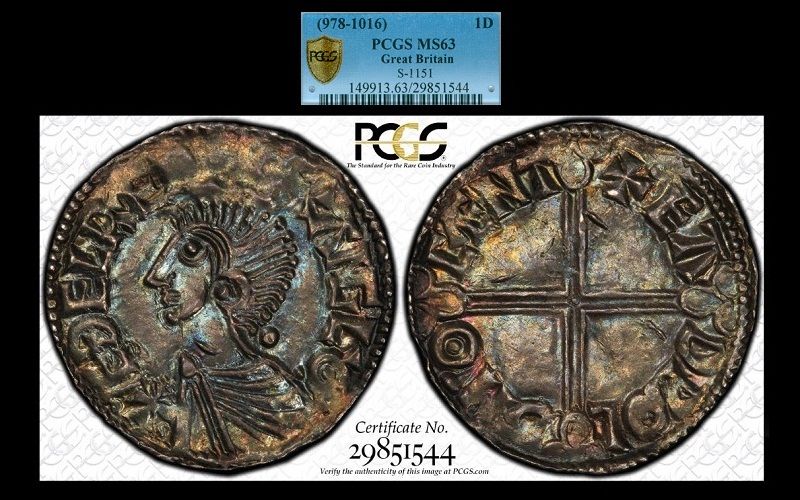
England: silver Short Cross penny of King John (1199-1216), struck in the name of Henry II, ca. 1205-1207
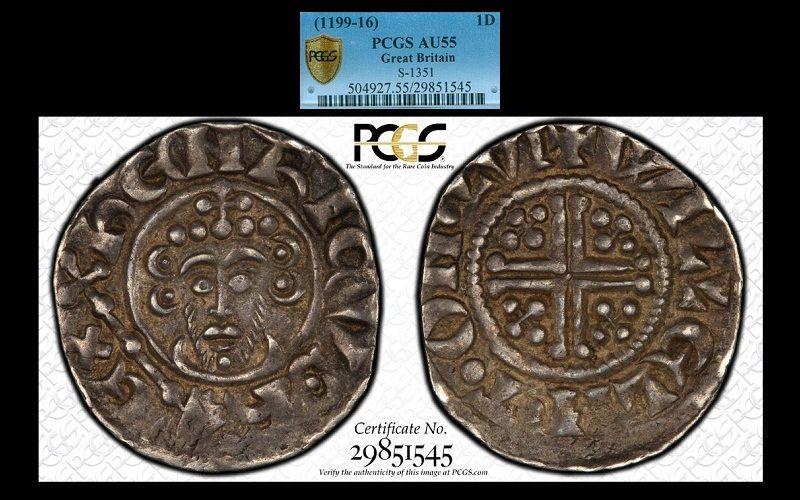
Italy (Venice): silver grosso of Antonio Venier, ca. 1382-1400
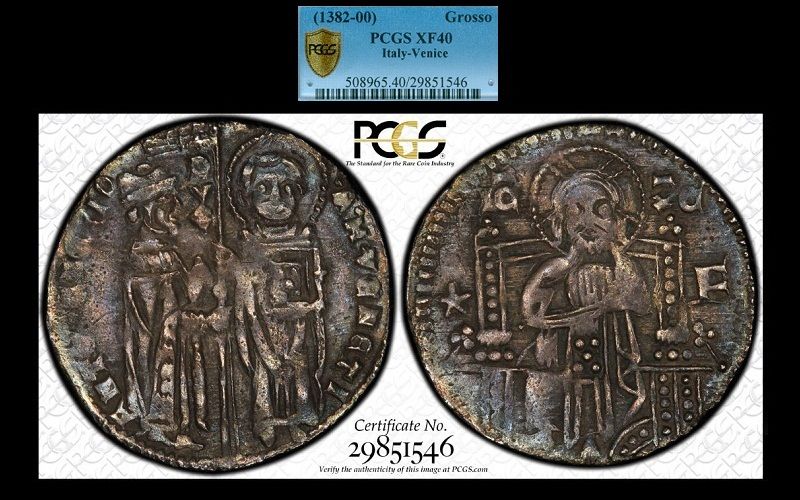
Great Britain, silver "South Sea Company" shilling of George I, 1723
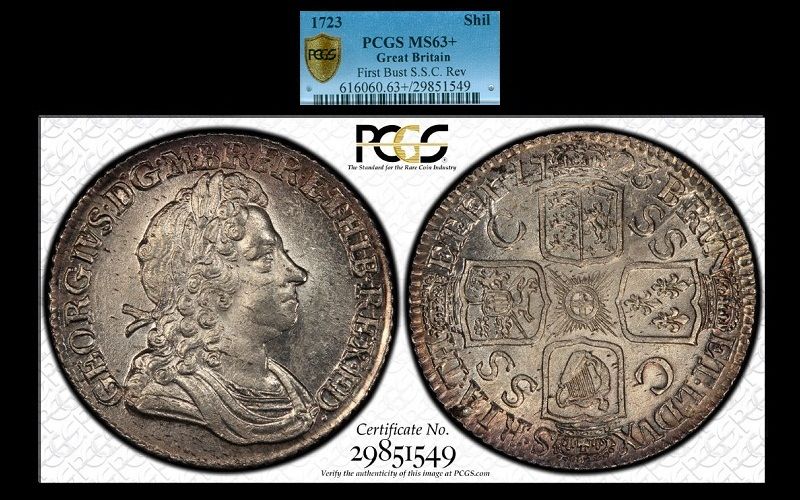
Great Britain: gilt copper proof halfpenny of George III, Soho Mint, 1806
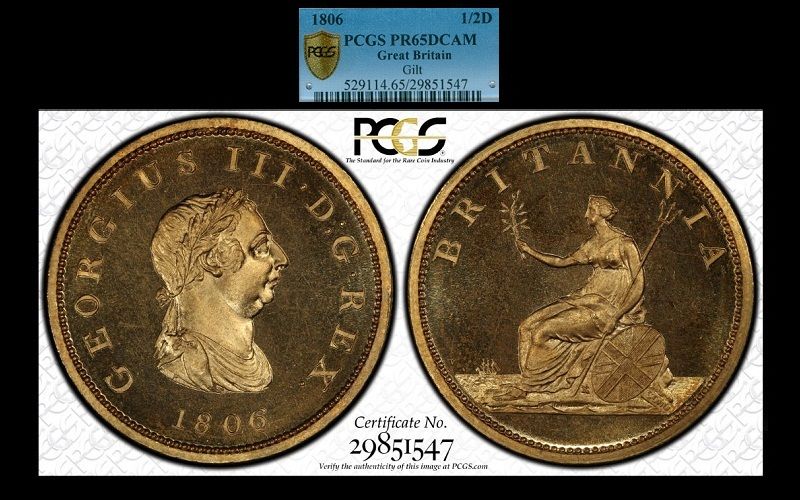
USA: gold Liberty half-eagle, 1842-D small date
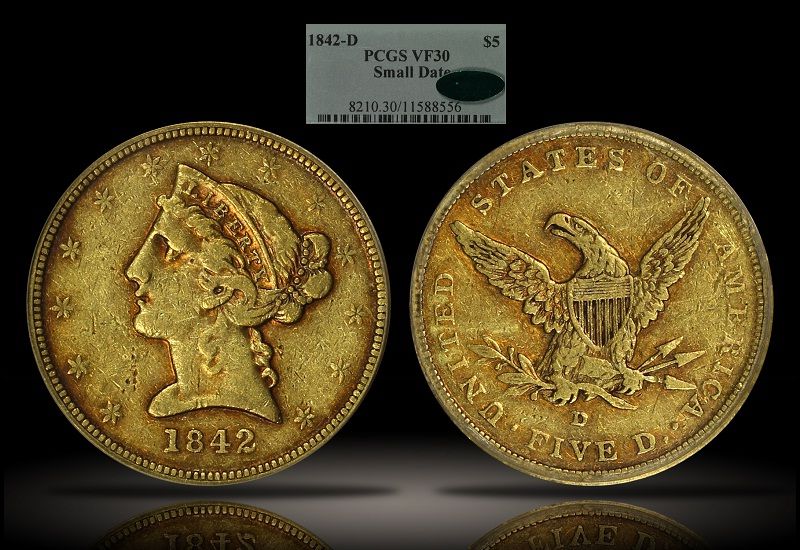
USA (Syracuse, NY): brass merchant token, A.C. Yates Clothing Emporium, ca. 1850s
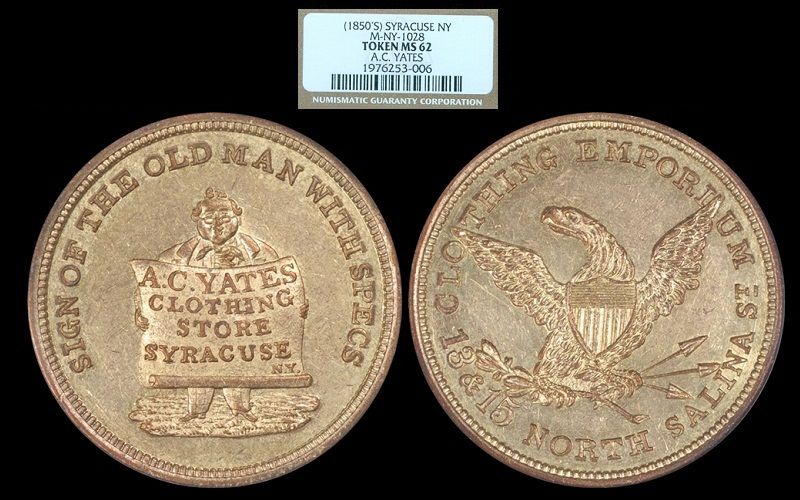
USA: bronze Civil War token, "Our Little Monitor", 1863
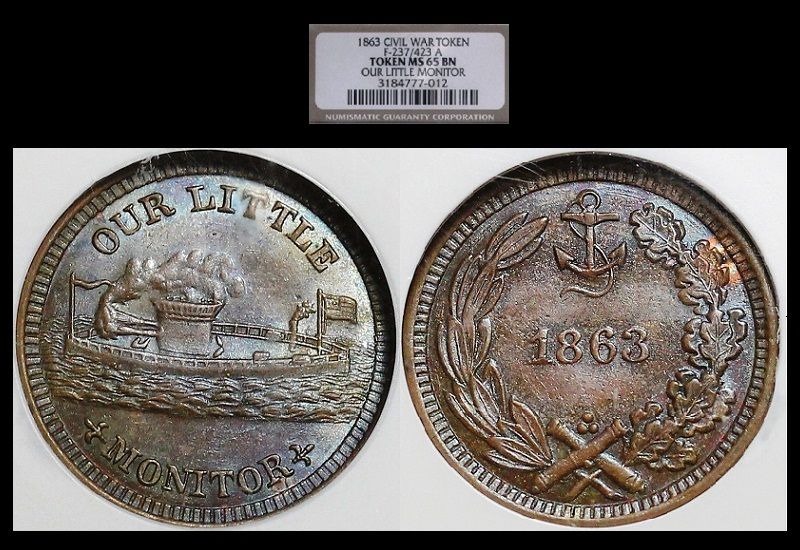
Japan (Meiji Era): gold Nibu-Kin (2 bu), ca. 1868-1869
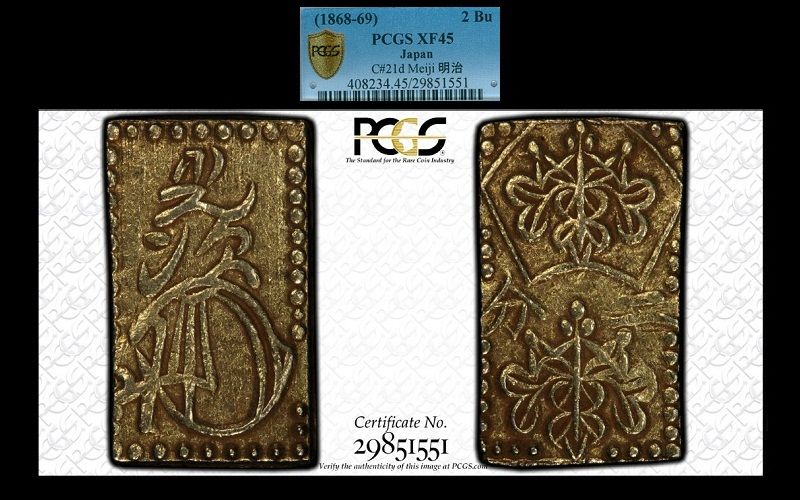
France: gold 20-francs "Angel", 1877-A
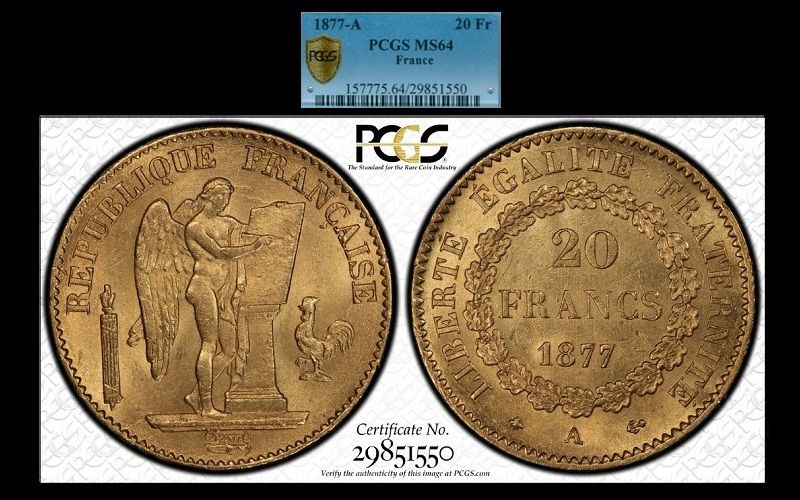
USA: nickel three-cent piece, 1880 proof
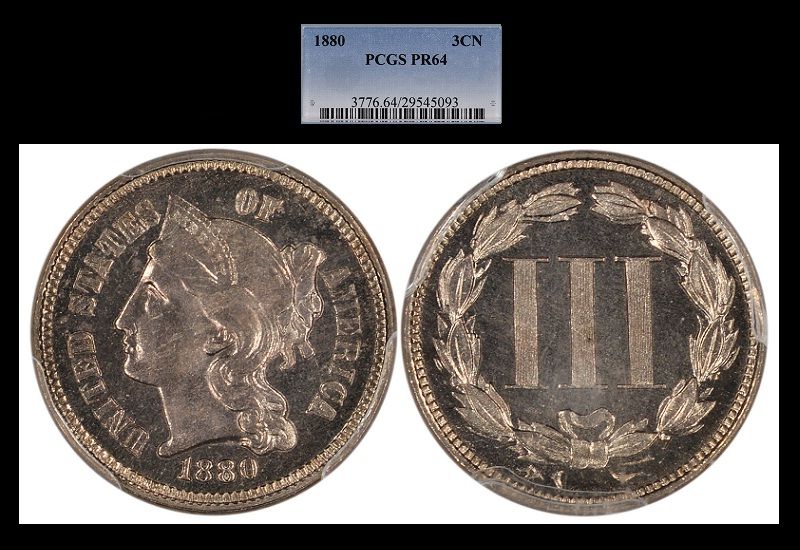
Great Britain: gold half-sovereign of Queen Victoria, 1901, ex-Terner Collection
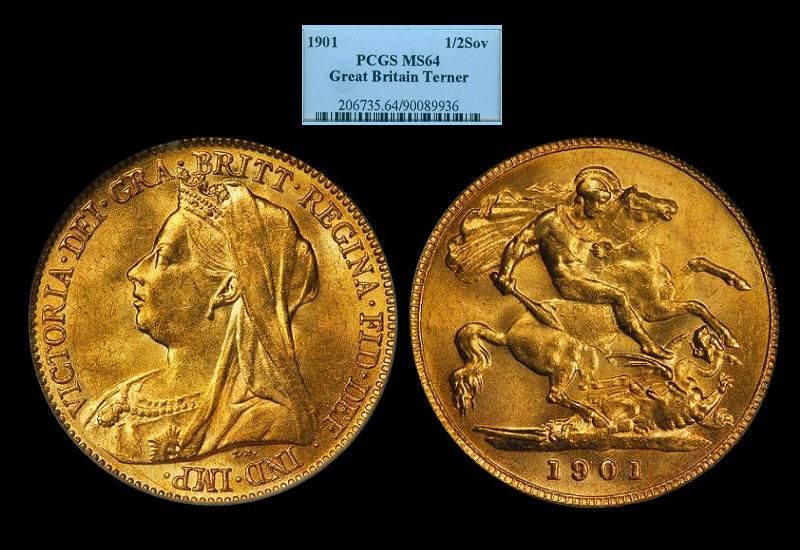
German States (Saxony) silver 3 mark proof, Battle of Leipzig centennial commemorative, 1913-E
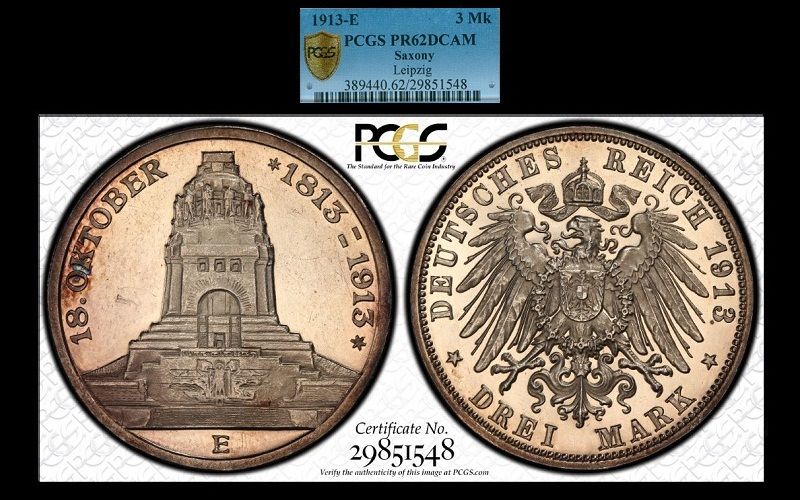
USA: Pilgrim Tercentenary commemorative half dollar, 1920
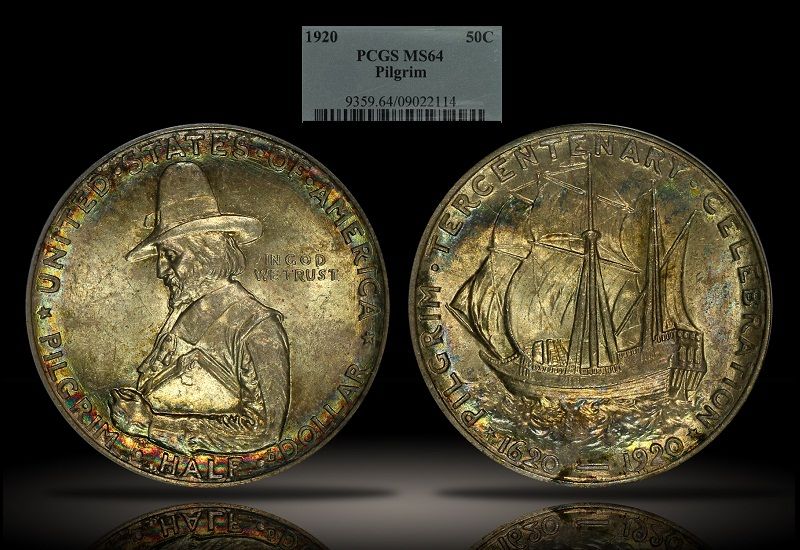
The idea is a freestyle "Box of 20" collection with no parameters or restrictions except that the coins must be certified and the collection is limited to twenty pieces. (When one comes in, another must go out, in a quest for ever more appealing coins.) Otherwise, anything goes. In a way, I have narrowed my focus by limiting myself to just twenty slabbed pieces, but on the other hand, I've opened up my horizons to pursue whatever catches my fancy, be it ancient, medieval, modern, or even some tokens and medals. It sort of feels liberating to be freed of the constraints of collecting "sets"- now I can collect what I like and not be a slave to any predetermined "structure". But as the coins get nicer, I suspect it will become more and more difficult for me sentimentally to stick to the "one in, one out" rule.
So now there is but one Box of 20 for my active collection. To wax Tolkienesque about it, "One box to rule them all... One box to find them... One box to bring them all, and in the darkness bind them."

Ancient Greece (Thessaly), silver pseudo-Rhodian drachm struck by King Perseus of Macedon, ca. 175-170 BC

Ancient Greece: Seleucid Kingdom, bronze AE19 of Antiochus VIII, ca. 121-96 BC

Ancient Rome (Imperial): silver denarius of Tiberius, ca. 14-37 AD: the biblical "Tribute Penny"

Ancient Rome (Imperial): bronze as of Claudius, ca. 41-54 AD

Ancient Rome (Imperial): silver denarius of Otho, ca. January-April, 69 AD

Ancient Byzantine Empire: gold tremissis of Justinian I, ca. 527-565 AD

England (Anglo-Saxon): silver penny of Aethelred II (978-1016 AD), struck ca. 997-1003 AD

England: silver Short Cross penny of King John (1199-1216), struck in the name of Henry II, ca. 1205-1207

Italy (Venice): silver grosso of Antonio Venier, ca. 1382-1400

Great Britain, silver "South Sea Company" shilling of George I, 1723

Great Britain: gilt copper proof halfpenny of George III, Soho Mint, 1806

USA: gold Liberty half-eagle, 1842-D small date

USA (Syracuse, NY): brass merchant token, A.C. Yates Clothing Emporium, ca. 1850s

USA: bronze Civil War token, "Our Little Monitor", 1863

Japan (Meiji Era): gold Nibu-Kin (2 bu), ca. 1868-1869

France: gold 20-francs "Angel", 1877-A

USA: nickel three-cent piece, 1880 proof

Great Britain: gold half-sovereign of Queen Victoria, 1901, ex-Terner Collection

German States (Saxony) silver 3 mark proof, Battle of Leipzig centennial commemorative, 1913-E

USA: Pilgrim Tercentenary commemorative half dollar, 1920

Collector since 1976. On the CU forums here since 2001.
0